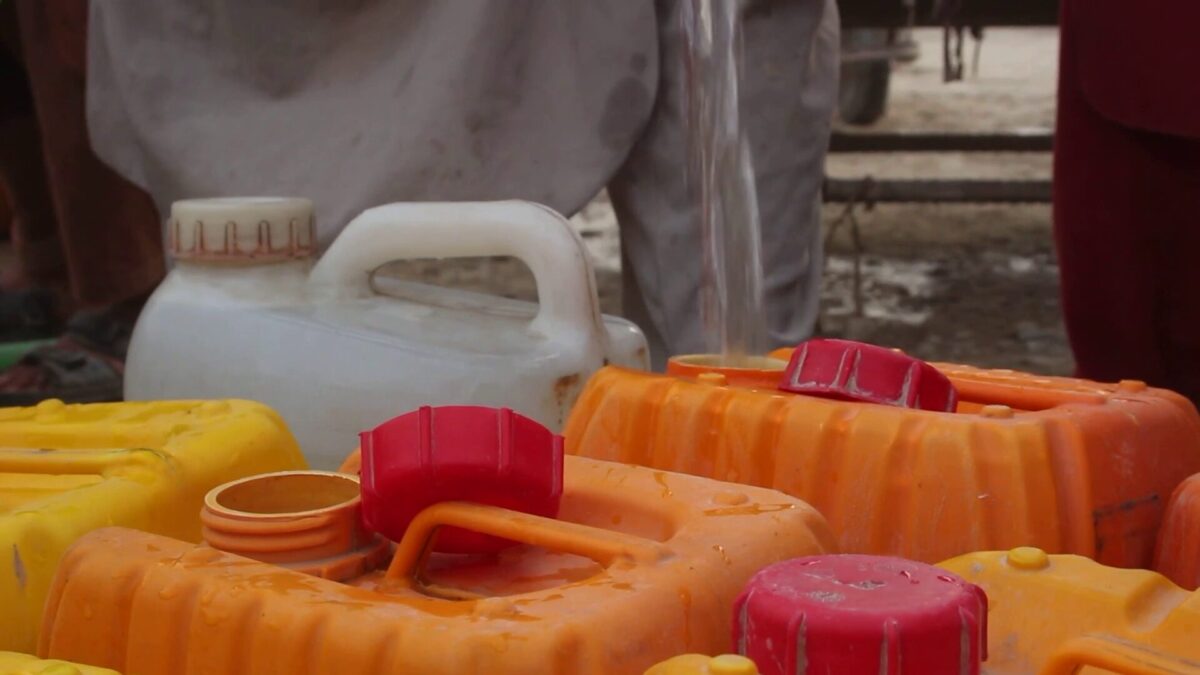Residents of Kabul face severe challenges in accessing clean drinking water, with many forced to endure long waits and pay high prices for limited supplies. A lack of sustainable water sources, the high cost of purchasing water, and the absence of a reliable distribution network have made daily life increasingly difficult.
In Karte Ariana, a neighborhood in Kabul’s Second District, residents queue for hours to collect water from mosques, often their only available source. However, the growing demand has strained these limited resources.
“We only find water every ten days, and even then, only at mosques, where there’s too much crowding,” said Ziba, a Kabul resident. “We’re forced to buy water at high prices, spending around 300 Afghanis a week. On top of this, unemployment and economic hardships are making life unbearable.”
For some, access to water involves long commutes. Mohammad, a resident of Char Qala in Wazir Akbar Khan, travels daily to the Taimani neighborhood to fetch water.
“The tap water in our area is unreliable and not drinkable when it does come,” he said. “We have to buy water from tankers, but even that is not enough. The long distances and time spent in queues only add to our problems.”
Costly tanker water
In many parts of Kabul, residents rely on private tankers to deliver water, often at significant expense. Families report spending 400 to 500 Afghanis per week for water, which still falls short of their household needs.
“Our tap water is either unavailable or only found at mosques,” said Maqdas, another Kabul resident. “We pay 10 Afghanis for a single barrel of water, but even that isn’t enough to meet our needs.”
Water shortages are not a new issue for Kabul residents, but the situation has worsened in recent years. Despite efforts to address the problem, no sustainable solution has been implemented.
Experts stress the urgent need for a comprehensive and reliable water distribution system to ease the burden on residents and improve living conditions in the Afghan capital.




